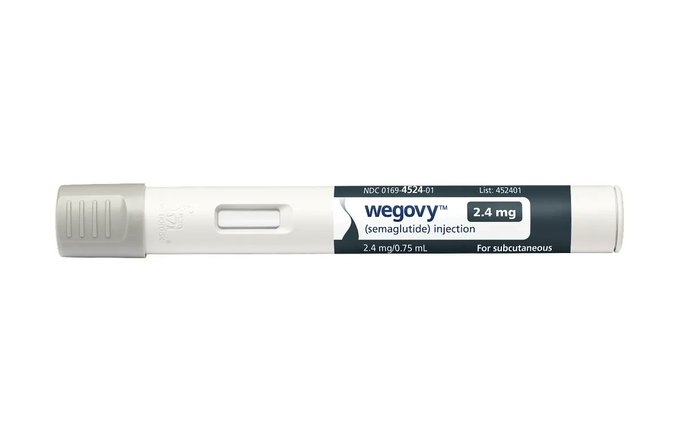Novo Nordisk gets NICE okay for obesity drug Wegovy

Novo Nordisk's new obesity therapy Wegovy has been recommended for routine NHS use by UK cost-effectiveness watchdog NICE, but in a narrower group of patients than is covered by its MHRA-approved label.
NICE has backed use of the Wegovy (semaglutide) for people with a body mass index (BMI) of 35 kg/m2 or more and at least one weight-related ailment – such as high blood pressure, high cholesterol or diabetes – as part of a weight management programme involving exercise and a reduce-calorie diet.
The once-weekly injectable GLP-1 agonist is approved for use in people with a BMI of 30 or more, as well as for those who are overweight with a BMI of 27 or more.
However, in the draft guidance NICE that it should only be used in the 30 or over BMI bracket in "exceptional" circumstances. In practice, that the patient has been referred to 'tier 3' multidisciplinary services for people with obesity who have not responded to other interventions.
There is a lower threshold for people from south Asian, Chinese, and Black African or Caribbean family backgrounds, who can experience more serious health implications from obesity, typically allowing treatment with drug if the BMI is 2.5 kg/m2 lower.
There is still an opportunity to argue for broader use of Wegovy during the consultation period on the draft guidance, which ends on 1 March.
Nevertheless, the decision by NICE to back routine NHS use of Wegovy is a win for Novo Nordisk, which has been hit by supply constraints linked to a contract manufacturer for the drug that have affect its rollout in the US, where it was approved last June. The drugmaker hasn't yet started to break out sales of Wegovy in its financial results.
NICE indicated in a statement that the recommendations for Wegovy as they stand would make it an option for "thousands of people" living with obesity.
The 2019 Health Survey for England estimated 28% of adults in England were obese and a further 36% were overweight, according to NICE. Government estimates indicate that the current costs of obesity in the UK are £6.1 billion to the NHS and £27 billion to wider society.
The regulatory approvals for Wegovy came on the back of the STEP clinical trial programme, which involved more than 1,500 people who were treated with the drug over a 68-week period.
Subjects who received Wegovy lost an average of 12.4% of their initial body weight compared to individuals who received placebo, which is considered to be a clinically important result. In addition, up to a third of patients lost an average of 20% of their total body weight, approaching the level of weight loss seen with surgical procedure like sleeve gastrectomy.
It is much better than has been achieved with other obesity medicines, including Novo Nordisk's older once-daily injectable Saxenda (liraglutide).
In an emailed statement, Novo Nordisk UK's general manager Pinder Sahota note that the company welcomed the preliminary NICE recommendation.
"We are hopeful that Wegovy being made available on the NHS will help thousands of people living with obesity," he said.













